Charlie Hebdo emerged under its current title in the 1970s and made its name lampooning political and religious figures. In recent years, the magazine heaped particular scorn on what it characterized as Muslim extremism. Many have found its cartoons of Muhammad deeply offensive, and critics have called the magazine racist and demeaning of the country’s cultural minorities, especially its sizable populations of North African origin. Notably, its offices were firebombed after the magazine named Muhammad its “editor in chief” for an issue on sharia in 2011.
Until last month’s attack, however, the magazine was little known beyond France. In the wake of the massacre, it was quickly valorized as a symbol of freedom of expression and French secularism, and the hashtag #JesuisCharlie (“I am Charlie”) spread rapidly across social media. French Prime Minister Manuel Valls declared a “war against terrorism, against jihadism, against radical Islam, against everything that is aimed at breaking fraternity, freedom, solidarity.” On January 11, 2015, more than a million people, including 40 of the world’s political leaders—not all of whom are otherwise known for their support of free speech—marched together in Paris.
The week after the massacre, Charlie Hebdo’s “All is forgiven” issue featured a cover depicting the prophet Muhammad in tears, holding a sign that read “Je suis Charlie.”
The violence, and responses to it, have raised a slew of questions. Is it helpful, or even accurate, to characterize these killings as religiously motivated? How have the attack and responses to it helped to construct or entrench the identities said to be in conflict? Should the events be understood in the context of France’s history of satire or its history of colonialism? Can the two be separated in this case? What is the significance of the willingness of many not only to affirm free expression, but also to identify themselves with the magazine? Are there limits to the freedom of expression?
Many thanks to contributor Richard Amesbury for his assistance in conceptualizing and framing this discussion—ed.
This page was updated on 2/24/2015—ed.
Our respondents are:
Richard Amesbury, Professor of Theological Ethics and Director of the Institute for Social Ethics, University of Zürich
Sindre Bangstad, Researcher, Faculty of Theology, University of Oslo
Amélie Barras, Assistant Professor of Social Science, York University
Jocelyne Cesari, Senior Research Fellow, Georgetown University and Director, Islam in the West Program, Harvard University
Grace Davie, Professor of Sociology, University of Exeter
Mark Juergensmeyer, Professor of Sociology and Global Studies and Director of the Orfalea Center for Global and International Studies, University of California, Santa Barbara.
Cécile Laborde, Professor of Political Theory, University College London
Vincent Lloyd, Assistant Professor of Religious Studies, Georgia State University
Tariq Modood, Professor of Sociology, Politics and Public Policy and Director of the University Research Centre for the Study of Ethnicity and Citizenship, University of Bristol
Ebrahim Moosa, Professor of Islamic Studies and Co-director of Contending Modernities, University of Notre Dame
Yvonne Sherwood, Professor of Biblical Cultures and Politics, University of Kent
Ivan Strenski, Professor of Religious Studies, University of California, Riverside
Charles Taylor, Professor Emeritus of Philosophy, McGill University
Jeroen Temperman, Associate Professor, Erasmus School of Law, Erasmus University Rotterdam
Jeremy F. Walton, CETREN Postdoctoral Researcher, Georg-August-Universität Göttingen
______
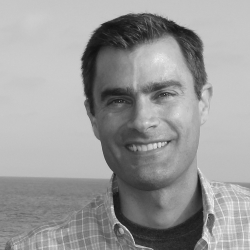 Richard Amesbury, Professor of Theological Ethics and Director of the Institute for Social Ethics, University of Zürich
Richard Amesbury, Professor of Theological Ethics and Director of the Institute for Social Ethics, University of Zürich
In the week after the Charlie Hebdo murders, millions of people who had until then never heard of the magazine suddenly claimed to be Charlie. Presumably this meant, among other things, to be against the killings. It also acquired the meaning of supporting “free expression.” But it is notable that there was no comparable outpouring of popular support for, say, James Risen, the New York Times reporter who had, until earlier that same week, been under pressure to disclose his sources to the U.S. Justice Department. And it is worth recalling that Charlie Hebdo’s predecessor publication was banned for offending the pieties, not of religion, but of the French state.
One would like to believe that, had they actually seen some of the cartoons that Charlie Hebdo has published in recent years, more people would have limited themselves to defending the magazine’s right to speak freely, while morally condemning the demeaning content of some of that speech. But it is not unlikely that the rush by many in the United States and Europe to identify with the publication had something to do with the fact that the killers were Muslims and the cartoons were of Muhammad. By conflating form and content, Je suis Charlie lent a patina of liberal respectability to anti-Islamicism: “I disapprove of you, and I will defend to the death my right to say so.”
France, like the United States, has a storied history of championing “universal values.” But precisely because it is assumed that no rational person could object to them in principle, ideals like “freedom” (liberté) can be deployed in practice to mark a civilizational frontier. It is regrettable that responses to the attack, like the murders and the cartoons, have largely served to harden the boundaries.
______
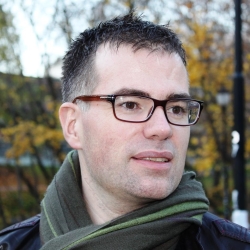 Sindre Bangstad, Researcher, Faculty of Theology, University of Oslo
Sindre Bangstad, Researcher, Faculty of Theology, University of Oslo
How can one “say that ‘Islam means peace’ if so much violence seems to come from it?” John R. Bowen has asked.
We should “start by taking seriously the idea that Islam is best seen as a set of interpretive resources and practices,” argues Bowen. The statements “Islam means peace” and “Islam means war” both share essentializing features.
The terrorists who in January this year caused the death of twelve French cartoonists and four French Jews in Paris were, in many respects, what we have come to expect of many salafi-jihadist terrorists these days. They grew up under unstable circumstances in foster homes and orphanages. They were poorly educated on-and-off Muslims drifting from a life of small crime, drugs, and hip-hop to the violent fantasies of a pure and unadulterated Islamic world of absolute certainties inspired by the revelations of the theatrical spectacles of counter-violence and revenge visited upon the bodies of brown Muslim men and women in the war on terror.
It would be far too easy and simplistic to declare that the shooting had nothing to do with Islam. For it remains a fact that within the exegetical canon that matters to the contemporary salafi–jihadists responsible for much of the violence and terror inflicted upon Muslims and non-Muslims alike in today’s world, a classical Hanbali scholar such as ‘ibn Taymiyya (d. 1328) can always be marshaled in support of the view that anyone who engages in the “exceptional crime” [jinaya mufrada] of satire [hija] against the Prophet of Islam “deserves death.”
There is no single cause of terrorism—whether right-wing extremist or salafi-jihadist. The Paris terrorists are dead and do not speak. But we can be reasonably sure that their hatred and resentment did not relate exclusively to caricatures and cartoonists. Through the rituals of mourning and commemoration, these have been turned into core postmortem symbols of French elitist liberal and secular culture. The terror and violence seem also to have spoken about the longue durée of French-Arab-North African relations; its legacies of extreme brutality and violence on all sides; and its long afterlife in everyday lives marked by segregation, exclusion, marginalization and discriminatory policing in the French banlieues.
In no country is freedom of expression absolute, and the risk of turning the libertarian-anarchist soixante-huisards of Charlie Hebdo into martyrs in a liberal free speech pantheon through liberal media megaphones, is to feed the flames of stigmatization and polarization in contemporary Europe. Once more, we need to go beyond the media framing, and ask the fundamental question as to how we—ordinary and peaceful citizens of all backgrounds—are to “fit into each other’s frames” in a future and increasingly multicultural Europe.
______
 Amélie Barras, Assistant Professor of Social Science, York University
Amélie Barras, Assistant Professor of Social Science, York University
The sacralisation of laïcité seems to be fully underway in France. In the aftermath of the Charlie Hebdo attacks, Najat Vallaud-Belkacem, the Minister of Education, announced that the government would invest 250 million euros into a program to reinforce Republican values in schools, in which the transmission laïcité of is identified as central. The program plans to offer training on laïcité to existing educators, to make the ability to communicate republican values a recruitment criteria for future teachers, to require parents and children to sign a Charter of laïcité, to ask teachers to systematically report behaviors that violate republican values, and to reinforce republican rites, including the celebration of a laïcité day on December 9th (commemorating the law of December 9th 1905, also often known as the separation law). Laïcité is, thus, transformed into a national ritual that has to be revered, studied, learned, lived, performed, and celebrated.
The implementation of such measures should not come as a surprise, especially for those of us familiar with the French context. Many aspects of this program were already formulated in different reports on laïcité commissioned by the French government over the past decade. These measures are, in fact, part of a climate in which laïcité and republican values, while never clearly defined, have been used as a justification to scrutinize and interfere with the bodies, sensibilities, and practices of Muslim citizens (particularly women). Under this light, this sacralisation of laïcité is particularly troubling. It could easily provide momentum to systematize this policing, and foreclose any possibility for alternate ways of living and being to flourish in schools. It could, in other words, further contribute to ossifying identities along a deeply alienating secular/religious divide.
______
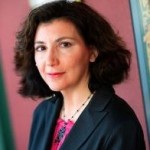 Jocelyne Cesari, Senior Research Fellow, Georgetown University and Director, Islam in the West Program, Harvard University
Jocelyne Cesari, Senior Research Fellow, Georgetown University and Director, Islam in the West Program, Harvard University
The targeting of Charlie Hebdo is more than an attempt to crush freedom of press. It is a response to the broader French political and cultural environment that has been growing more and more hostile toward Islam and that indirectly plays as an asset in the strategy of radical global movements.
In the French context as well as all over Europe, we have witnessed in the last 20 years an increasing political resistance against the practices of Islam and their visibility in public spaces: from the ban on hijab (head covering) and niqab (full face covering) to the limitations on mosque-building, halal slaughtering, and even circumcision. Muslims have the feeling that being or looking like a practitioner of the Islamic faith will ostracize them, not to mention that this hostility goes hand in hand with concrete discriminations against the practice of the religion: women barred from entering public buildings because they wear hijabs, discrimination on the job market, in the workplace, etc.
Of course, none of these discriminations or abuses should justify the use of violence or the killing of journalists or civilians. In fact, the vast majority of Muslims do not act against discrimination, and when they do, they tend to use the legal resources at their disposal to fight against these prejudices. Even during the cartoons crisis in 2006, although the media focus was on imams calling for the death of the cartoonist, there were also groups of Muslims claiming that they could be protected by existing legislations across Europe (including France) that actually limit freedom of speech in cases of inciting racial hatred or denying the Holocaust. Interestingly, these legitimate claims were neither heard nor taken into account.
These continuous limitations on the practice of Islam are justified by an anti-Islamic discourse that is no longer the monopoly of extreme right-wing movements but shared by all political actors from right to left. This rhetoric presents Islam as an external religion that threatens the core liberties of European democracies and therefore needs to be limited or circumvented, following the argument made famous by the French Revolutionary Saint-Just: “No freedom for the enemies of freedom” (Pas de liberté pour les ennemies de la liberté).
The problem is that this dominant perception of Islam in Europe actually reinforces the rhetoric of Al Qaeda and ISIS, who justify their actions for the sake of an Islam that has to be saved from the decadent western enemy. Because this “us versus them” is very accessible to young Muslims everywhere through the Internet and other social media, it is no surprise that this rhetoric resonates with their daily experience in European societies and therefore make some of them easy recruits for the global jihad.
______
 Grace Davie, Professor of Sociology, University of Exeter
Grace Davie, Professor of Sociology, University of Exeter
As is so often the case, my reaction to the Charlie Hebdo attack was colored by what else I was doing at the time. Specifically, a visit to the British Museum in London to see the acclaimed Germany: Memories of a Nation exhibition. The narrative took in some 600 years, but included material on the Nazi period. Conspicuous within this was the poster for Der Ewige Jude, The Eternal Jew, a Nazi-sponsored exhibition that depicted Jewish history and religion as a global conspiracy linking the extremes of usury with fears of Bolshevism. The poster is a grotesque caricature of a Jewish man.
It is this poster that comes into my mind when I see, or recall, the Charlie Hebdo cartoons. But am I right, or am I not, to make the connection?
One point is clear: I am hardly the first person to do so. The resonance of the British Museum exhibition may be stronger in my case, but the ambiguities surrounding Charlie Hebdo and anti-Semitism have been much discussed. Within these, the differences between the state-sponsored distortions of the Nazi period, which led inexorably to persecution, and the production of a journal whose very existence embodies the freedom of speech are evident. But the link remains, brought about by the obvious similarity between the visual representations.
Following the Charlie Hebdo attack, the issues at stake—both general and particular—were shrewdly addressed in the series of cartoons published by Joe Sacco in The Guardian. A central question underlines these thought-provoking images, in which the cartoonist speaks to his profession: what are the limits of satire and what happens if the victims of satire, in this case the Muslims, don’t find it funny. What indeed?
______
 Mark Juergensmeyer, Professor of Sociology and Global Studies and Director of the Orfalea Center for Global and International Studies, University of California, Santa Barbara.
Mark Juergensmeyer, Professor of Sociology and Global Studies and Director of the Orfalea Center for Global and International Studies, University of California, Santa Barbara.
In the aftermath of the terrible shootings in Paris and the horrific burning of a captured Jordanian by ISIS, religion is once again in the news, and bad news at that. Religion seems so clearly implicated: after all, the perpetrators cloaked themselves in religious language and appealed to the faithful to justify their acts. But what, in fact, does religion have to do with such things?
Possibly everything, many public commenters have said. More likely, I think, only a bit. Let me explain, beginning with a parallel.
When right-wing patriots almost literally wrap themselves in flags as they plot to assassinate the President of the United States—which they have—few people blame nationalism itself. Rather, they look at the mixture of psychological and political motives that may have brought the conspirators to their savage plans. When a whole group or culture adopts a vicious form of extreme nationalism—Nazism comes to mind—again it is not nationalism itself that we blame, but a perverted form of it crafted to buttress the power-hungry designs of a political junta.
The role of religion in public violence is like that. For this reason, it is lazy thinking to blame religious beliefs and scriptures without looking at the sociopolitical and historical contexts. It excuses us from probing more deeply into the alienation and humiliation experienced by the Algerian immigrant community in France, in the case of the Paris attacks, or the marginalization of the Sunni Muslim tribal communities in Eastern Syria and Western Iraq, in the case of ISIS.
But religion is not totally off the hook. After all, religious traditions provide ethical justifications for killing that can be exploited, and images of cosmic war that can magnify a worldly conflict into one of transcendent importance. Ideologues have utilized these religious images in crafting worldviews of grand warfare. These take on a life of their own, promoted by demagogues, and spread through compelling Internet videos. Religious ideas and legendary stories that are swept into these scenarios give them the illusion of religious legitimacy.
Hence the role of religion can be problematic. Though it doesn’t cause violence, it is often the excuse for it. But religion can’t “do” anything—motivate actions or sway thinking—by itself. It is not a disembodied thing that has power of its own. It is simply a part of culture, something that people can use and abuse, for good or for ill. And lately, much of it has been for ill indeed.
______
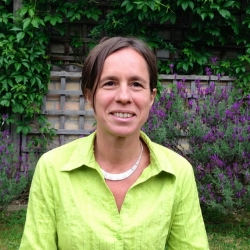 Cécile Laborde, Professor of Political Theory, University College London
Cécile Laborde, Professor of Political Theory, University College London
Charlie Hebdo is a newspaper with a proud history of radical anti-establishment polemic, a historically minuscule readership and a string of recent provocative cartoons targeting Islam and Islamism. The emotional, spontaneous “Je suis Charlie” movement quickly set the scene for a vibrant campaign for free speech. Yet it is to give too much credit to the Paris assassins to claim that they “attacked the value of free speech.” What they did was brutally murder journalists, as well as Jewish shoppers, policemen and women, in a senseless, barbaric criminal act.
The state of free speech in France is exactly the same after and before the attack. Before the attack, Charlie Hebdo had a right to publish what it wished—and it is crucial that the newspaper be now helped to live on, without threat or intimidation. Before the attack, other newspapers were under no editorial obligation to publish cartoons satirizing Islam. Why should the “value of free speech” require them to do so now? To respect free speech is to tolerate even objectionable speech: to refrain from interfering with (or criminalizing) it, and to defend the right of those who engage in it. This is quite different from endorsing the content of that speech.
For French authorities to demand that Muslims now publicly proclaim that they “are” Charlie—that they effectively endorse the content of the cartoons—is not to defend free speech. It is to enforce compulsory, official speech—the very opposite of free speech. All those who have invoked Voltaire in recent weeks would do well to remember that free speech is important in a democracy precisely because it protects the freedom to dissent, the right to say unpleasant and disrespectful things. A society where 8-year-old children can be questioned by police because of their defiant (and no doubt stupid and ill-intentioned) refusal to show appropriate respect to the victims of the attack, is not a society that is confident about its proclaimed values. In this sense, the Paris murderers have already won a partial victory. They have exposed the muddle of a society that too quickly applies double standards of freedom of speech. Instead of steadfastly tolerating all speech, we sacralize some forms of disrespectful speech (by satirical journalists), and criminalize others (by defiant youth).
A longer version of this text can be found here—ed.
______
 Vincent Lloyd, Assistant Professor of Religious Studies, Georgia State University
Vincent Lloyd, Assistant Professor of Religious Studies, Georgia State University
We were already Charlie, or rather Charlie was already us. The iconoclasm of the 1960s and 1970s became institutionalized transgression in the decades that followed. It became a culture of transgression, and a culture that defined transgression as defining who we are. To be is to be ecstatic, to push my limits, to challenge convention. Iconoclasm became bourgeois chic, New Ageism that now permeates corporate culture. The ideal manager pushes against limits, scoffs at tradition, knows how to laugh—and so does the ideal consumer. We have agency when we think different.
But we are also Malala, committed to respecting the essential humanity of others, committed to respecting difference, committed to creating opportunity. Malala is serious but caring. She speaks without a hint of cynicism, with an unequivocal faith. Malala is timeless, not hip; she is everywhere, not just here.
We are Charlie because we are Malala; je suis Charlie because I Am Malala. The culture of cynicism marked by Charlie is sustainable because of its disingenuousness. When implicit commitments are made explicit, in crisis, we are happy to make that utterly uncool, utterly serious utterance, “je suis Charlie,” channeling the voice of Malala. Charlie is the class clown, the masculine performed; Malala is the teacher’s pet, femininity embodied. Yet they are reared in the same Cosmopolitan Bourgeois Academy.
For Charlie and for Malala, religion is one difference among many, one more embellishment on our complexly beautiful humanity or one more absurdity to triumphantly mock. These are the siblings of our secular age, where religion is always, at the end of the day, about me.
______
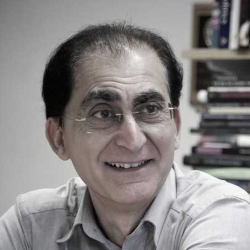 Tariq Modood, Professor of Sociology, Politics and Public Policy and Director of the University Research Centre for the Study of Ethnicity and Citizenship, University of Bristol
Tariq Modood, Professor of Sociology, Politics and Public Policy and Director of the University Research Centre for the Study of Ethnicity and Citizenship, University of Bristol
In contrast to some of their European counterparts, British newspapers like The Guardian chose not to reproduce any of the Charlie Hebdo cartoons. They were said to be acting out of fear or out of not wanting to give Muslims unnecessary offense. Fear of violent retaliation must have been a factor but in not wanting to gratuitously offend a minority, those who chose to not republish offensive cartoons did not fail to exercise their right to free speech.
It has been said that “[i]n its cartoons, Charlie Hebdo did not discriminate. The magazine lampooned all and sundry in its cartoons: racists, bigots, right-wing politicians, the uber-rich, Judaism, Christianity, Islam, and more.” Yet there is a world of difference between satire against the powerful (“speaking truth to power”) and satire against the powerless, where it becomes not just a form of bullying but risks becoming racist.
Charlie Hebdo published many images of Muslim-like characters, some of them acting violently. Are such images meant to represent the generality of Muslims? In the way that, for example, the 1920s Nazi magazine, Der Sturmer, would have a cartoon of a Jewish financier, the undesirable qualities of whom—heartless, exploitative, greedy and so on—was meant to be about Jews as such. Yet if it is meant to lampoon jihadists, it is inoffensive and embodies a form of political defiance against terrorism.
However, the success of such a cartoon depends upon it being clear to all readers of that the cartoon that it cannot be mistaken to be about all Muslims or about a figure dearly revered by many Muslims. Such a cartoon then will have a very broad appeal.
So, the Charlie Hebdo “free speech” argument has not really been about the right to free speech but about how to exercise the responsibility that goes with free speech. None of this of course justifies any form of violence let alone the murders of the cartoonists, but it at least identifies some of the relevant issues.
______
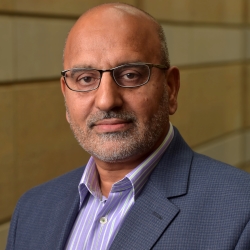 Ebrahim Moosa, Professor of Islamic Studies and Co-director of Contending Modernities, University of Notre Dame
Ebrahim Moosa, Professor of Islamic Studies and Co-director of Contending Modernities, University of Notre Dame
Blasphemy as heresy has become the pretext for intra-Muslim violence and occurs more frequently than similar publicized events elsewhere. Pakistan sometimes dominates the headlines on this topic, as does Saudi Arabia periodically. Under Hosni Mubarak, heresy charges made their way into Egypt’s courts for resolution.
Insult directed at the Prophet Muhammad—his person, status and character—is viewed as the most extreme form of blasphemy. The majority of classical Sunni and Shia law schools deem it an exceptional offense. The perpetrator deserves the death penalty. Satirical poetry carried the strongest emotive power to offend. Blasphemy laws were refined in the post-prophetic period. Based on the precedents established by the Prophet Muhammad at the conquest of Mecca, these rules are well entrenched in multiple Muslim sub-traditions. Recall that these rules once went hand-in-glove with an imperial political order that derived its legitimacy from a Muslim political theology where politics was part of a salvation doctrine. Of course, the original rule was broached to shield a living Prophet from demeaning conduct. Once upon a time Jewish law too outlawed blasphemy, cursing, and disrespect directed at Jewish kings and judges.
The question in contemporary Islam is this: Do democratic political orders, multicultural and religiously plural nation-states require a different kind of Muslim political theology? I can already hear protestations: Why should Islam comply with liberal and secular norms! Yes, liberal democratic orders are riddled with paradoxes, double standards, and blind spots that at times tilt to the power of questionable institutions and vested interests.
Yet a bundle of Islamic doctrines once intimately wedded to past political-theologies remain in circulation. These include apostasy, blasphemy, and heresy rules that now require careful revision by Muslim jurist-theologians. Hardly any theologian will touch these issues with a bargepole. Sure, some would courageously hedge or issue apologetics as a workaround, but few would directly address their validity today.
Today blasphemy doctrines are like undeactivated theological hand grenades that are used by angry individuals, demagogues, and violent political groups in order to justify their violent actions on religious grounds. Confident that Muslim orthodoxy can hardly demur, they also know the majority of Muslims possess no theological literacy to refute their violent actions. Of course, many Muslim actors have discovered the power to protest blasphemy and a few embrace the intimidating power of violence. What about adopting a strategy of restraint in the face of provocation? That might be another kind of untested power. Could the exercise of restraint as a prelude to theological revision be a start?
______
 Yvonne Sherwood, Professor of Biblical Cultures and Politics, University of Kent
Yvonne Sherwood, Professor of Biblical Cultures and Politics, University of Kent
In a cartoon for The Guardian, Joe Sacco wondered why no respectable cartoonists were busy drawing black men in trees with bananas in order to perform that nebulous value “freedom of speech.”
Blasphemy as a category invokes the specter of religion, not ethnicity, which is why it is safe. Western modernity constructs itself on the assumption that the gods do not exist—or that they do not exist for all, which is the same thing. The successor to the gods is religion, which does exist for some. Or maybe not. We are profoundly confused as to where to put “religion.” The foundational Western value of freedom of religion leads us to valorize religion. Recently it has led us to define religion as a category of ascriptive identity, so that religion functions like sexuality and ethnicity, legally speaking. The religious believer must be protected and respected because she has a “belief” so deep that it defines her like the color of her skin. But at the same time we stick to our old foundational declaration that religion is a matter of choice. And we feel we must work hard in public assertions of defiance that lead us to collectively reaffirm the public credo that religion is merely superstition.
Blasphemy is never just about religion. But it is about religion. There is something about homegrown conceptual mess that can make people understandably really angry. One of the targets that blasphemers aim for is the moving target of religion.
This mess is ours and it needs no “outsiders” to provoke it. Where we err, is when we take them as the embodiment of our malfunctioning and conflicted category of religion. When they are provoked, we can select from this homegrown mess to simultaneously assert our foundational right to attack the gods—with all the aggression that a nothing deserves—but at the same time add the disclaimer that we never had any intention of harming real people. No one is getting hurt because the gods do not exist.
______
 Ivan Strenski, Professor of Religious Studies, University of California, Riverside
Ivan Strenski, Professor of Religious Studies, University of California, Riverside
Facts: The Charlie Hebdo murderers were Muslims and they murdered, in their own words, to defend the Prophet Muhammad’s honor.
But some are eager to jump past these facts, to leap to labeling these murders “essentially Muslim.” Ironically, such a leap threatens to advance the killers’ darker intentions of provoking all-out war between Islam and the West. Since I refuse to collaborate in such provocation, I want to show how unfair and, indeed, meaningless it is to call the Charlie Hebdo murders “Muslim.”
First, Muslims, like Jews, are not counseled to “turn the other cheek” when attacked. But this acceptance of violence in self-defense does not entail violent aggression against the defenseless. Thus, the Charlie Hebdo murders cannot be called Muslim: what looks like a Muslim proclivity for violence may actually be more accurately described as the absence of a Muslim pacifism. Religions come in different shapes: unarmed prophets, like Jesus or the Buddha, occupy a different moral universe than armed prophets, like Muhammad or Moses. But, just because a prophet is armed doesn’t mean he will attack the defenseless.
Second, no one speaks, or even can speak, for the 900 million Muslims who make up Sunni Islam. Sociologically, Sunnis are radically fragmented, like the Protestants of the Christian world. It is, therefore, meaningless to brand attacks by a tiny band of Sunni Muslims as essentially Muslim. There is simply no “there” there in the Sunni world—only “theres.” Why else would ISIS vainly and pretentiously claim to be the Islamic State? But neither ISIS, nor anyone else in the Sunni world, can claim authority over all other Sunnis. What “Muslim” or “Sunni” is remains to be defined by history. That’s why it is meaningless to say that the Charlie Hebdomurderers committed a “Muslim murder.”
______
 Charles Taylor, Professor Emeritus of Philosophy, McGill University
Charles Taylor, Professor Emeritus of Philosophy, McGill University
The murder of the Charlie Hebdo editorial group was horrible and utterly condemnable. But that shouldn’t be taken to mean that Charlie Hebdo’s republication of the Danish anti-Muslim cartoons, and their own subsequent, similar caricatures were a good idea. On the contrary.
Ridicule is a blunt instrument. As an arm against powerful, dominant people and groups, it is often useful, and also requires courage. But when one proposes to hold up to ridicule a group of people who are already a disadvantaged minority, looked down on by many and discriminated against—as are the Muslim minorities in Denmark and France—one should think twice. This turns out to be a courageous act, precisely because of the threats which were so gruesomely carried out in the massacre, but one neither wise or humane.
I am not pleading for censorship; that, too, is a blunt and dangerous instrument. But this mode of expression has to be guided by an ethics of citizen exchange, one which is negated by indiscriminate use of ridicule. I would bet that this is recognized by Charlie Hebdo in other cases; that they would think twice of caricaturing handicapped people, or gays, or women trying to gain admission to hitherto closed realms, like politics. But they were probably blinded by certain “laïc” prejudices about “religion” being, by nature, menacing and a threat to the Republic, so that caricaturing Muhammad looked like cheek in the face of power, rather than piling on an already disadvantaged minority.
The long and stressful relationship between France and Algeria didn’t help.
Besides showing insensitivity to their target, caricatures like Muhammad with a bomb instead of turban on his head contribute to entrenching the mindless Islamophobia that sees all Muslims as enemies of the West and its freedoms. Not a wise move if one is concerned either with integrating immigrants from the Maghreb in French society, or with avoiding the “clash of civilizations” which Islamophobes seem so eager to bring on.
______
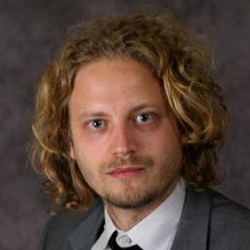 Jeroen Temperman, Associate Professor, Erasmus School of Law, Erasmus University Rotterdam
Jeroen Temperman, Associate Professor, Erasmus School of Law, Erasmus University Rotterdam
The Charlie Hebdo massacre does not pose questions about religion, but about the radicalization of citizens. The massacre does touch upon questions of freedom of expression, but mostly in somewhat indirect ways and in that this right was brutally cut short. The type of satire, criticism of religion, and even defamation of religion practiced by Charlie‘s cartoonists and others is, most definitely, covered by freedom of speech. One may have seen the anti-defamation banners complaining that insulting blacks amounts to racism, insulting Jews amounts to anti-Semitism, while insulting Muslims amounts to freedom of expression, but the racism/anti-Semitism analogy is a false one: ways of life, religious precepts, outlooks on life, may be debated and criticized, while some other human characteristics may not be. Of course, some “contributions” to such debate may appear gratuitously offensive to some—whilst appearing funny to others—but personal insult will always be far too subjective a criterion to base laws or judicial doctrines on.
This is not to say that there are no “duties” to be identified here—there are many, albeit not necessarily all of a legal nature. Call it decency and common sense. First, having a right, like the right to offend, does not mean one must exercise it at all times. Again, if one wants to do so, this should be (legally) possible, and, where contentious, both the speech and the person behind the speech must be firmly protected. Second, those offended have a continuing duty to explain the nature of their grievances. Third, everybody “who is not Charlie” has a duty to reach out to those offended, so as to make sure the latter knows that, indeed, not everybody is Charlie.
The latter two duties are forms of counter-speech. The free market paradigm is still alive; however, it sometimes needs a boost—notably by political, religious, and other leaders—especially where and when counter-speech is shouted down by populism and kneejerk reactions.
______
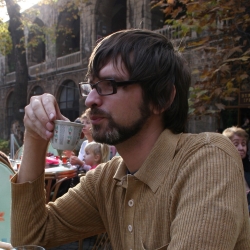 Jeremy F. Walton, CETREN Postdoctoral Researcher, Georg-August-Universität Göttingen
Jeremy F. Walton, CETREN Postdoctoral Researcher, Georg-August-Universität Göttingen
In response to the attack on the offices of the French satirical magazine Charlie Hebdo in early January, many non-Muslims have asked a seemingly obvious question: Why are Muslims so easily offended and upset by images of the Prophet Muhammad? My contention in this brief comment is that this is a misguided question. Rather than seeking explanations of political violence in the semiotic representation of the Prophet Muhammad, we must examine the political logic of parody, caricature, and belittlement of Islam.
While it is undeniable that many, though by no means all, Muslims are sensitive to pictorial depiction of the Prophet for theological reasons, theology alone cannot account for the mass outcry in response to publications such as Charlie Hebdo or the Danish newspaper Jyllands-Posten, which published a series of caricatures of Muhammad in 2005. Mass media represent in two distinct ways: semiotic and political. While the semiotic representation of the Prophet may provoke theological sensitivities, these theological sensitivities alone do not determine political offense. To account for this, a second aspect of caricatures of Muhammad must be addressed: the explicit, performative intention of the cartoonists and publications to belittle Muslims. Publications such as Charlie Hebdo and Jyllands-Posten aim to incite the very passions that they simultaneously criticize Muslims for harboring. Theology and issues of semiotic representation are thus not of primary importance here. Rather, the performative political power of mass media, exercised from a hegemonic position against a vulnerable minority, defines events such as the Charlie Hebdo attack, the Jyllands-Posten cartoon controversy, and the Rushdie Affair.










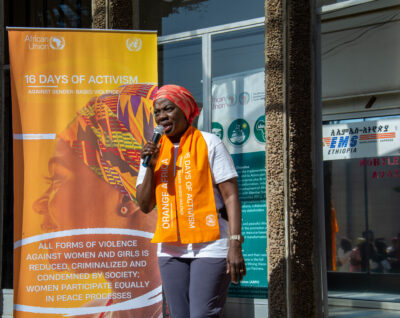
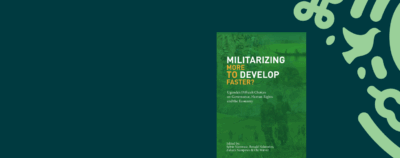


Very thoughtful and thought provoking comments. Thank you. I plan to share these with my students.
As an academic who conducted research in several Muslim countries, and professional visits to 25, I was often struck by the distortions of everything about Islam and Muslims in the Western mass media. It was, as if the purveyors desired a so called conflict of civilizations. We need to mass market comments like the above in the hope that it will lead to better understanding.
The attack must be unequivocally condemned. But it’s equally true that most cartoons recently carried in Charlie Hebdo on Islam and Muslims were calculated to insult and provoke.
Charlie Hebdo’s defenders say it has a history of lampooning all religions, including Christianity (although rarely Judaism), that irreverent satire is part of French culture, and that many Charlie cartoonists had a secular-Left past.
This defence isn’t very convincing although France does have a tradition of irreverence towards authority. Many Charlie cartoonists started on the Left but evolved Rightwards. They justified recent Western interventions in the Arab world, without criticising the European leaders who knowingly practised “extraordinary rendition” of terror suspects for torture.
In recent years, Charlie’s vitriol was reserved overwhelmingly for Islam — in a country where Muslims are a stigmatised minority. Large numbers of second-generation Arab-origin youth have been radicalised by the West’s “war on terror”, including Abu Ghraib’s barbarity and Western interventions in Syria and Libya. “The New York Times” has reported at length on how the marijuana-smoking Kouachis were radicalised thus.
This doesn’t condone the Charlie attack, but puts it in context. The conflict today is not between Islam and democracy, but between two rival forces contending for global domination: the US-led “war on terror” in democracy’s name, and terror in Islam’s name.
The anti-immigrant anti-Islamic Far Right is gaining especially in France, Germany and Britain. Under threat is not the freedom of expression of the majority, but of the religious minorities: they see #KillAllMuslims trending on Twitter and Islamophobia peddled as “European values”.
Western Europe, which sees itself as secularism’s birthplace and highest embodiment, must ask searching questions about how much real separation it has achieved between religion and politics.
In England, religious-community-run schools can get 85 per cent funding from the state. About 6,700 Church-run schools get such finding, but fewer than 10 Muslim-run schools do. In France, one-fifth of all pupils go to Catholic schools, four-fifths of whose funding comes from the state.
In Germany, public funding is available to Christian schools, and since the WWII, to Jewish schools. But in France and Germany, no Muslim-run school is state-funded.
Most faith-related national holidays in Western Europe are the holy days of one religion, Christianity. In most old European universities, the nomenclature of academic terms derives from Christianity.
Many European countries don’t allow Muslims to build mosques in convenient locations. Some don’t permit halal slaughtering. In Denmark, Muslims find it difficult to bury their dead since the Lutheran Church owns all the cemeteries. They must either send their dead “back home” or negotiate burial in lands once reserved for non-believers.
Western Europe has a long-standing social compact based on Christian culture. Jews, held in contempt for centuries, were accommodated into it, but Muslims are excluded.
In ghettoised Muslim-majority Paris suburbs, youth unemployment is 40 percent, four times the national average. Surveys show that people living here have a much poorer chance of landing jobs than Christian inner-city dwellers, regardless of merit or experience.
Many Europeans think Muslims are overrunning their societies via rapid population growth, itself grossly overestimated. Muslims account for 7.5 percent of the French population, Western Europe’s largest share. But in popular perception, they account for 31 percent. The respective percentages are 5 and 21 (Britain), 6 and 19 (Germany), and 2 and 16 (Spain).
This disconnect indicates serious paranoia. More frightening, a majority of French, German, Spanish, Swedish and Swiss people believe “Islam is not compatible with the West”. The British percentage is slightly lower (47). These same societies encouraged immigration in the past because their populations were shrinking or getting too old.
Many European countries criminalise Holocaust denial, but don’t punish whitewashing of their record of colonisation which killed many more people than the Jews Hitler butchered, unforgivable as that was.
These double standards should be discussed to come to terms with the past, and deal wisely with the present. But such issues are erased from debate when episodes like Charlie Hebdo happen. The usual response is to assert “Western values”, or take draconian measures like the Patriot Act.
This vicious cycle must end. Instead of marching with Israel’s Binyamin Netanyahu, Western leaders and people must try to break the cycle through inclusion and impartial justice.
Nearly all of the respondents condemn the murders and defend free speech, but…
(I did find Vincent Lloyd’s contribution very compelling.)
The refrain is the same from virtually every respondent: “The killings were unjustified…but context context context.” Sadly none provided a clear contextual justification beyond the realities of race relations in France and the western world. If these killings were inexcusable, or unjustified, then the “but” should cease to exist.
If we wish to shed light on the broader issues surrounding Charlie Hebdo, let us do so while fully admitting that we are contextualizing the matter and dismantling the essentializing arguments put forth by those wishing to paint all Muslims with the same violent brush. Sadly this logic has the opposite of the intended effect: Many of the respondents end up painting Muslims as both a monolithic and victimized mass that after centuries of colonial oppression and discrimination spawned the violent few committing atrocities in their name.
If we continue to view the Charlie Hebdo killers as the product of discriminatory Western policies towards the Muslim community, we reinforce the notion that these murders were somehow in response to something much bigger than Charlie Hebdo but also much more than simply two violent sociopaths who claim to represent a community much more diverse than they were capable of grasping.
The Charlie Hebdo issue is an intellectual minefield because it deals with such contentious subjects as freedom of expression versus religious convictions, racial prejudices and religious intolerance. Nobody is really neutral or objective in spite of claims to the contrary. One’s identity makes a difference: whether it be Muslim, Jewish, Christian or agnostic, whether it be European, North-African or Middle Eastern. It will lead some to identify more with the victims and others with the perpetrators of a crime. Of course nobody is going to condone the attack BUT and it is what we say after this BUT that shows our true sentiments. Our rationale are never the result of well balanced and fair assessment: we all hold double standards.
For the people who live in the suburbs of Paris or other European metropolis, there is a mix of fear, disenfranchisement, and displacement which come from different quarters. The children of immigrants feel excluded from a society where to be successful one needs to master the language but also a culture which went from being steeped in Christian culture to becoming predominantly secular, and therefore incapable of understanding a legitimate aspiration for religious belief and practice. On the other hand, for the long time inhabitants, the ostentatious religious expression of an unfamiliar Islam make them feel displaced on their own turf and push them into the arms of right wing political parties.
The European privileged elite who lives far away from those suburbs are having a hard time addressing the issues because of their own prejudices about religion but also because they live in territories where they hold the reins of power. But in the rough terrain of the districts called “les quartiers sensibles,” the young Muslim men are the ones who hold the power as they jeer at women in the streets who don’t wear the veil, among many other unpleasantness.
The victims change depending on who holds the power, as massacres in the name of religion are perpetrated elsewhere in the world. One must start by holding the ones who commit crimes completely responsible for their actions and may be even more the ones who prone “djihadism” as a legitimate religious pursuit in their Friday preach or online: “les auteurs intellectuels du crime.” They are the ones who are the most dangerous.
The experts comments conform with the leading politically correct idea that the society has to adjust to the global world. In my opinion, the general historical trend by which religion loses power is neglected. The French society is currently understanding that they are facing a requirement to assimilate. Hard days come. Liberty will temporarily decrease with more police and social counter actions against non assimilated people and those non assimilated people will suffer. The big thing with Charlie is the unanimous reply from the assimilated French (who demonstrated). They are not God believers, and when they believe, it is for a smooth and controlled church. No room for Islamic uniforms or any visible particularity. Times have changed on the 11th of January (in France).